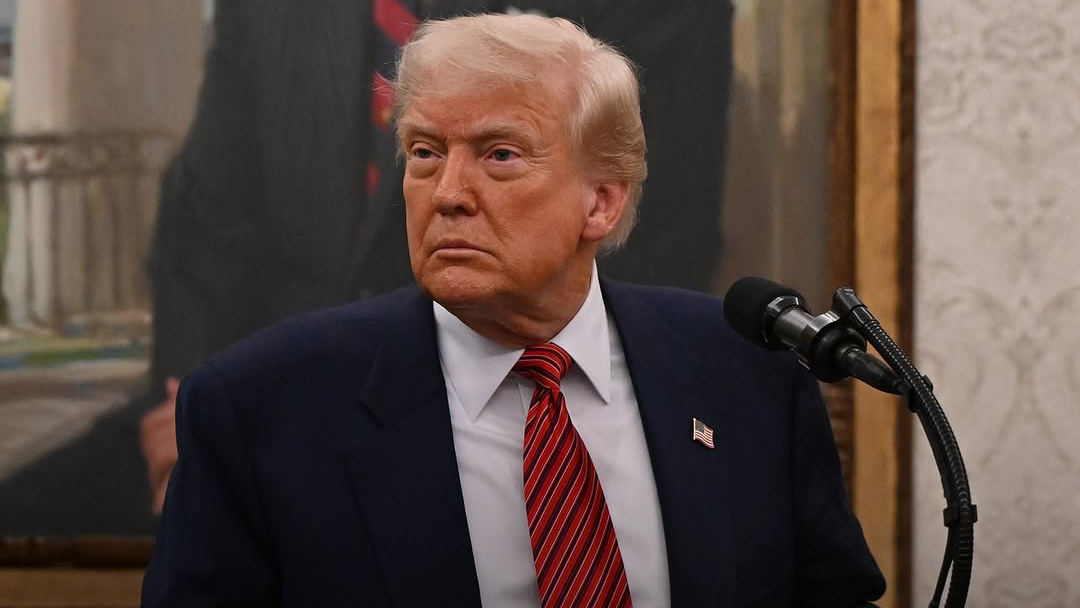Selective Sympathy: Trump’s Immigration Bias Laid Bare
A Presidency of Prejudice in Plain Sight
When former President Donald Trump met with the President of South Africa, what could’ve been a strategic diplomatic meeting quickly veered into political theater. In typical Trump fashion, the agenda was hijacked by a racially charged tangent—this time, his “concern” for white South African farmers.
This public display of selective outrage may have shocked global onlookers, but for many Americans, it felt like déjà vu. Once again, Trump’s deeply ingrained double standards in immigration policy were laid bare: white, affluent-seeming refugees are treated with concern and urgency, while Black, brown, and other marginalized immigrants are met with hostility, suspicion, and bureaucratic cruelty.
The White Refugee Exception
Trump’s obsession with white South African farmers—a group he believes are being “targeted” and “persecuted”—wasn’t rooted in any official human rights policy. It was, rather, a racial dog whistle wrapped in foreign policy packaging. He floated the idea of prioritizing them for refugee status while simultaneously overseeing a U.S. immigration regime that deported long-standing residents, tore apart families, and slammed the door on asylum seekers.
The message was clear: if you’re white, your story is believed. If you’re not, your trauma is questioned, your motives are doubted, and your future in America is anything but secure.
Related: Trump Takes a Detour: South Africa Meeting Spirals Off Script
Deportations Without Warning, Asylum Withheld Without Cause
Under Trump’s leadership, ICE raids increased, TPS (Temporary Protected Status) for countries like Haiti and El Salvador was slashed, and Muslim-majority nations were subjected to a travel ban. Border agents separated children from parents, and legal asylum-seekers were turned away at ports of entry.
These weren’t oversights—they were deliberate policies, fueled by xenophobia and rooted in a belief that non-white immigrants are inherently less deserving of the American dream.
Trump's Oval Office Tantrum: A Symbol of His Priorities
In the now-notorious Oval Office meeting with the South African president, Trump reportedly went off-script, delivering an angry diatribe based on online conspiracy theories and outdated “receipts.” The South African president, by contrast, remained composed, pushing back with facts. It was diplomacy vs. demagoguery.
This moment encapsulated Trump’s presidency: unmoored from data, fueled by grievance, and propped up by a racial hierarchy that elevates white lives while dehumanizing others.
Related: "Win a Visa or Go Home": Trump Admin Greenlights Immigration Game Show
Related: Easiest and Harshest Countries for Immigration
The Hypocrisy Is the Policy
Trump’s “concern” for white South Africans isn’t compassion—it’s performance. It’s a political tool used to stoke fear, score points with his base, and reinforce a world where whiteness is synonymous with innocence and legitimacy.
Meanwhile, refugees from war-torn regions, climate disasters, and cartel violence are subjected to a labyrinth of legal hurdles, suspicion, and abuse.
Conclusion
Immigration policy under Trump wasn’t just flawed—it was fundamentally unjust. The contrast between his treatment of white South African farmers and immigrants of color is a window into his worldview.
This isn’t about national security or economic impact. It’s about preserving a racially stratified vision of America, where whiteness opens doors and everything else triggers alarm bells.
Until we name it for what it is, racial prejudice in policymaking we’ll continue to allow inequality to masquerade as immigration reform.













